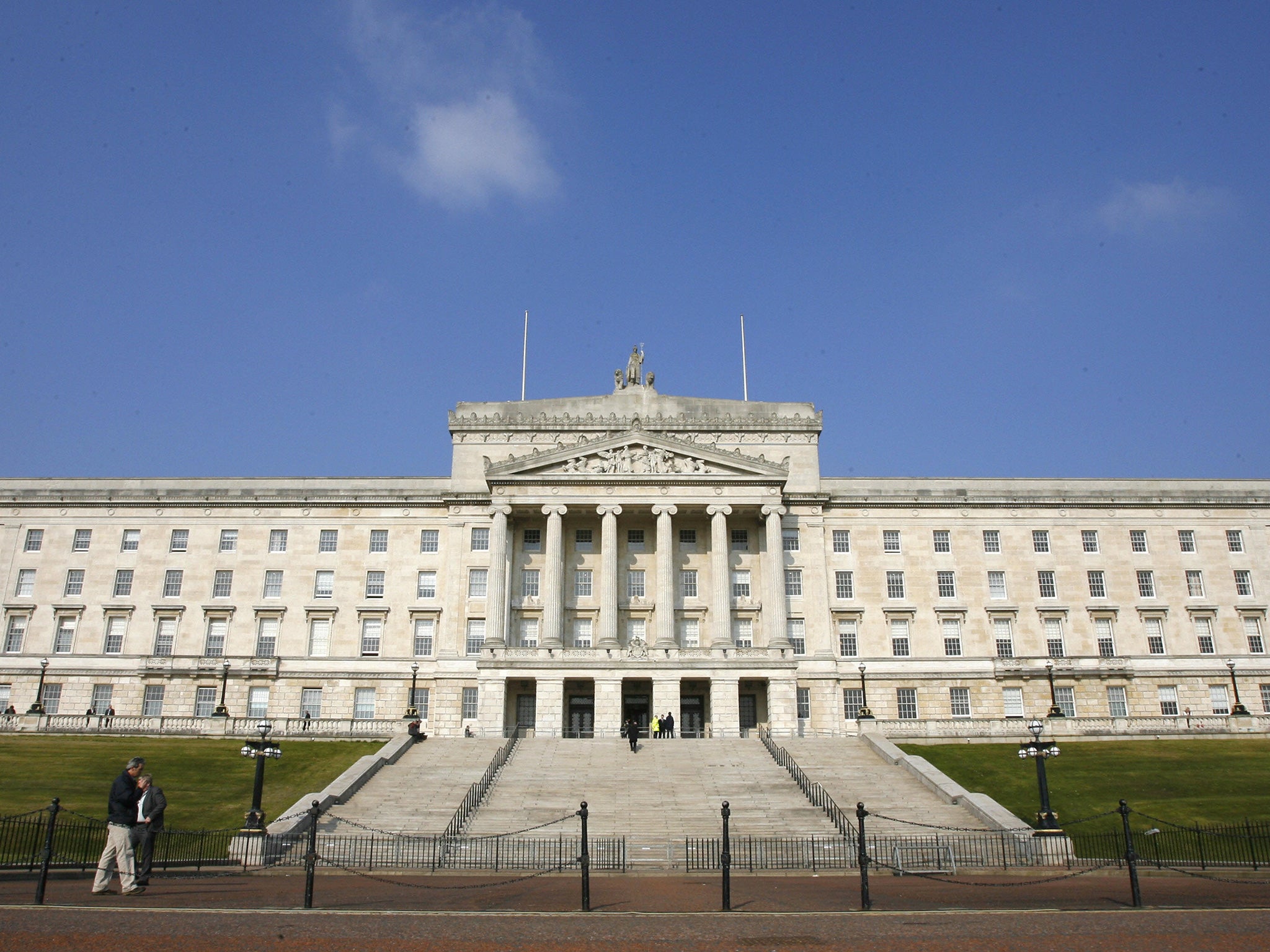Brexit report listing 20 ways EU withdrawal would damage Northern Ireland ‘suppressed before referendum’
Northern Ireland voted to remain in the EU

Your support helps us to tell the story
From reproductive rights to climate change to Big Tech, The Independent is on the ground when the story is developing. Whether it's investigating the financials of Elon Musk's pro-Trump PAC or producing our latest documentary, 'The A Word', which shines a light on the American women fighting for reproductive rights, we know how important it is to parse out the facts from the messaging.
At such a critical moment in US history, we need reporters on the ground. Your donation allows us to keep sending journalists to speak to both sides of the story.
The Independent is trusted by Americans across the entire political spectrum. And unlike many other quality news outlets, we choose not to lock Americans out of our reporting and analysis with paywalls. We believe quality journalism should be available to everyone, paid for by those who can afford it.
Your support makes all the difference.Publication of a report showing Northern Ireland would be seriously damaged by Brexit was suppressed before the referendum, it has been claimed.
A Civil Service briefing paper was composed outlining the negative implications of Brexit on Northern Ireland prior to the referendum vote. The 15-page document detailed a number of serious consequences for Northern Ireland which would be incurred by leaving the European Union. In total, at least 20 negative consequences were reportedly listed. However, the report was not published.
Leader of the Ulster Unionist Party, Mike Nesbitt, told the Northern Ireland Assembly he believes the decision not to publish the report may amount to a breach of Stormont’s ministerial code of conduct. He has asked Stormont’s speaker Robin Newton to consider whether action should be taken in relation to how the report was handled.
Mr Nesbitt said: “I suggest that it was in the public interest for this document to be published.” Leader of the cross-community Alliance party, David Ford, said if the paper had been published “perhaps it would have changed some minds in the lead-up to the EU referendum”.
In a statement, a spokesperson for the Stormont executive office said: “Officials prepare a range of papers on a regular basis, many of which are working papers and do not form submissions sent to ministers.
“This analysis paper was not sent to ministers for consideration following its completion. The executive office could not have taken sides in the referendum campaigns in the absence of an agreed position.
“In any case the document contains well rehearsed arguments which were openly being aired during the referendum campaign and would have added nothing to the wider debate.”
Northern Ireland voted to stay in the EU by a margin of 56 per cent to 44 per cent. As the only part of the UK to share a land border with another EU country (the Republic of Ireland), it is not known whether a physical border or passport controls will now be introduced between the two regions.
Northern Ireland also receives grants from the EU for cross-community projects between nationalist and unionist communities affected by the Troubles conflicts, known locally as “peace money”. It is expected such grants from the EU would stop following Brexit, but it is not yet known if the funding shortfall will be made up by Westminster.
Due to its considerable rural economy, Northern Ireland also receives a large number of farming and fishery subsidies from the EU which also now hang in the balance.
A legal challenge which could block Brexit has been brought by Northern Irish politicians, due to concerns about how EU withdrawal will affect Northern Ireland. It is led by cross-community politicians including Alliance leader David Ford, SDLP leader Colum Eastwood, Sinn Fein MLA John O’Dowd and Steven Agnew, leader of the Green Party.
Join our commenting forum
Join thought-provoking conversations, follow other Independent readers and see their replies
Comments